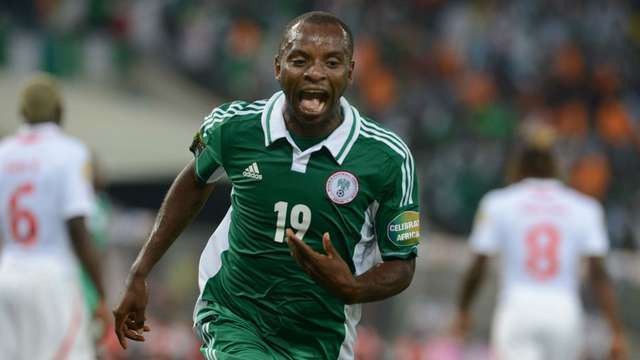On Wednesday evening, Republic of Ireland avoided relegation from Nations League Group B4 with a dreadful 0-0 draw against Bulgaria.
"It's not something to celebrate," manager Stephen Kenny admitted afterwards. And it wasn't. It was a game with no crowd, no goals and no purpose.
It was a game that should never have been played within an international break that should never have happened.
What unfolded in Dublin provided the few people that dared watch on television with a horrific but accurate portrayal of pandemic football.
Both sets of players gave their all – there was no shortage of full-blooded challenges – but the standard was shocking, and not just because this was a game between two low-ranked teams.
Bulgaria were deprived of 15 players through a combination of injury or Covid-19; Ireland were without 13.
The negative effect was as significant as it was inevitable. As Lille boss Christophe Galtier stated after losing two key players to injury over the past week, "Whoever made this international schedule has lost all reference to what high-level football is."
Cramming three games in an international window usually reserved for two was asking for trouble. And it arrived in spades.
Most media outlets understandably focused on the big stories: Luis Suarez contracted coronavirus on Uruguay duty, for example, while Sergio Ramos was injured lining out for Spain.
However, of greater significance was the fact that Norway had to forfeit one game because of a Covid-19 outbreak within their squad, and then field a ‘B team’ for another. In addition, Ukraine’s entire squad was put in quarantine in Lucerne after three members of its group for a game against Switzerland tested positive.
Meanwhile, the already-injured Aleksandar Kolarov has just returned to Inter with coronavirus, illustrating the dual risk posed by the international window.
The Serb is the ninth member of the Nerazzurri's squad to be sidelined by the virus since the start of the season, which offers an unequivocal response to CEO Beppe Marotta's question as to whether it was really wise to allow players to link up with their national teams at all.
The net result is that a number of top-flight games in Europe this weekend will go ahead without even more elite players, who have either ended up in the treatment room or self-isolation.
Liverpool, for example, will not have Mohamed Salah, Joe Gomez, Trent-Alexander Arnold or Virgil van Dijk for Sunday's clash with Premier League leaders Leicester, and could also be potentially shorn of the services of Jordan Henderson, Fabinho and Thiago Alcantara.
The Reds have been hit harder than most, by coronavirus, fatigue and the normal rigours of a top-flight campaign, but everyone will suffer this season. A widespread dilution of quality is, thus, absolutely inevitable, at every level.
Perish the thought, but games like Ireland-Bulgaria could become the norm, in the Premier League, the Champions League or even at the Euros, with the game's star men likely to be emotionally and physically drained by next summer.
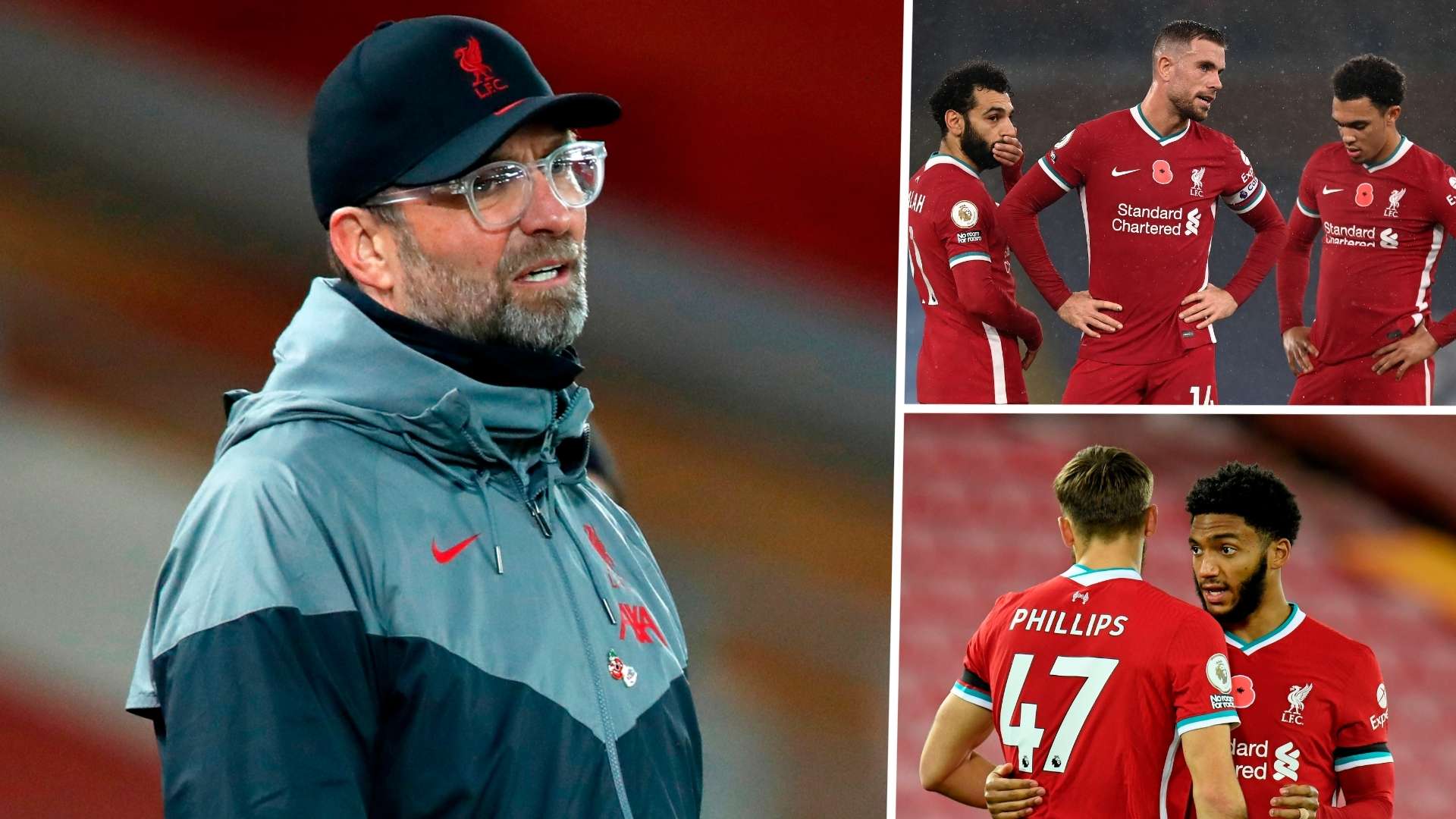 Getty/Goal
Getty/Goal
Players are already being pushed to breaking point. There has been a notable increase in muscular injuries this season – the predictable result of a shortened summer break, a truncated pre-season and the most congested fixture list the game has ever seen.
What's remarkable is there has been so little give, particularly in England. The Premier League is world-renowned for its intensity and yet it felt compelled to do away with its planned winter break to ensure the season finishes in time for Euro 2020, which has been postponed until 2021 because of the pandemic.
The Premier League's smaller clubs also voted against allowing five substitutes this season because of the understandable belief that it would benefit the bigger clubs, with their deeper pools of talent.
And that is the point here: every organisation is looking out for themselves. Nobody is looking out for the players.
"It's clear with these new invented competitions, we're simply puppets for both FIFA and UEFA," Germany and Real Madrid midfield Toni Kroos told Bild.
"New competitions are devised such as the Nations League or the expansion of the Club World Cup to maximise profit and in doing so it's simply pushing players to new physical limits."
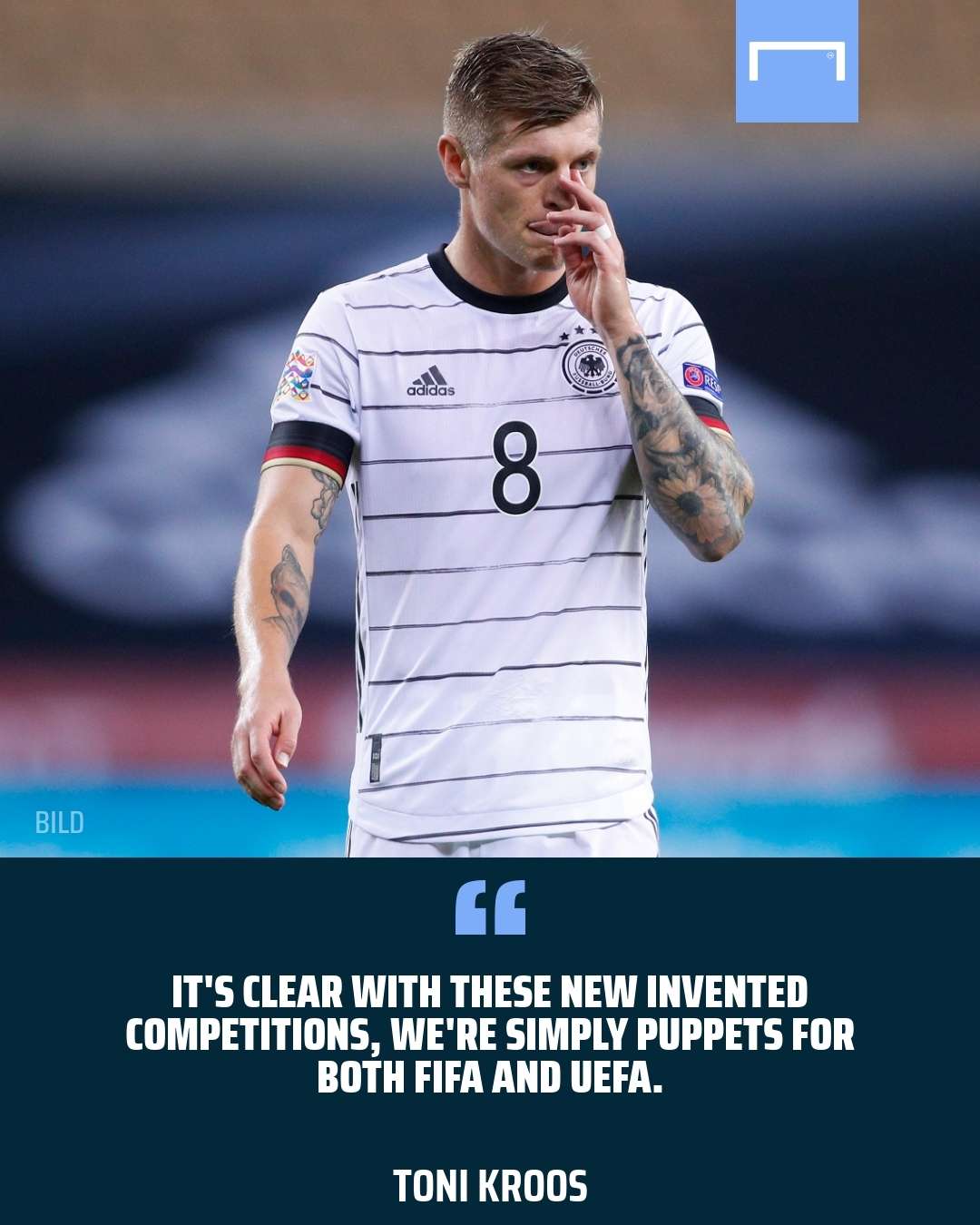 Getty/Goal
Getty/Goal
The mental aspect cannot be overlooked either.
"It’s not easy whatsoever," Aston Villa midfielder Conor Hourihane told reporters before Ireland's draw with Bulgaria. "This pandemic has influenced a lot of people.
"We’re all worried about results, performances and goals and whatever, but listen, I’ve had a family issue with Covid, somebody unfortunately passing away. It’s not an easy time for players.
"People won’t know what’s going on in players' lives. We’re all wanting to win games, but sometimes there are bigger things in life. This pandemic is definitely bigger than a couple of goals and a couple of results."
Of course, the broader question here is whether we should still be playing football at all. But there are obviously major financial factors at play here.
Clubs risk bankruptcy as it is without gate receipts; losing television money too would be a potentially fatal blow.
Football federations have the same fears; many simply couldn’t have done without the revenue generated from the latest round of international fixtures.
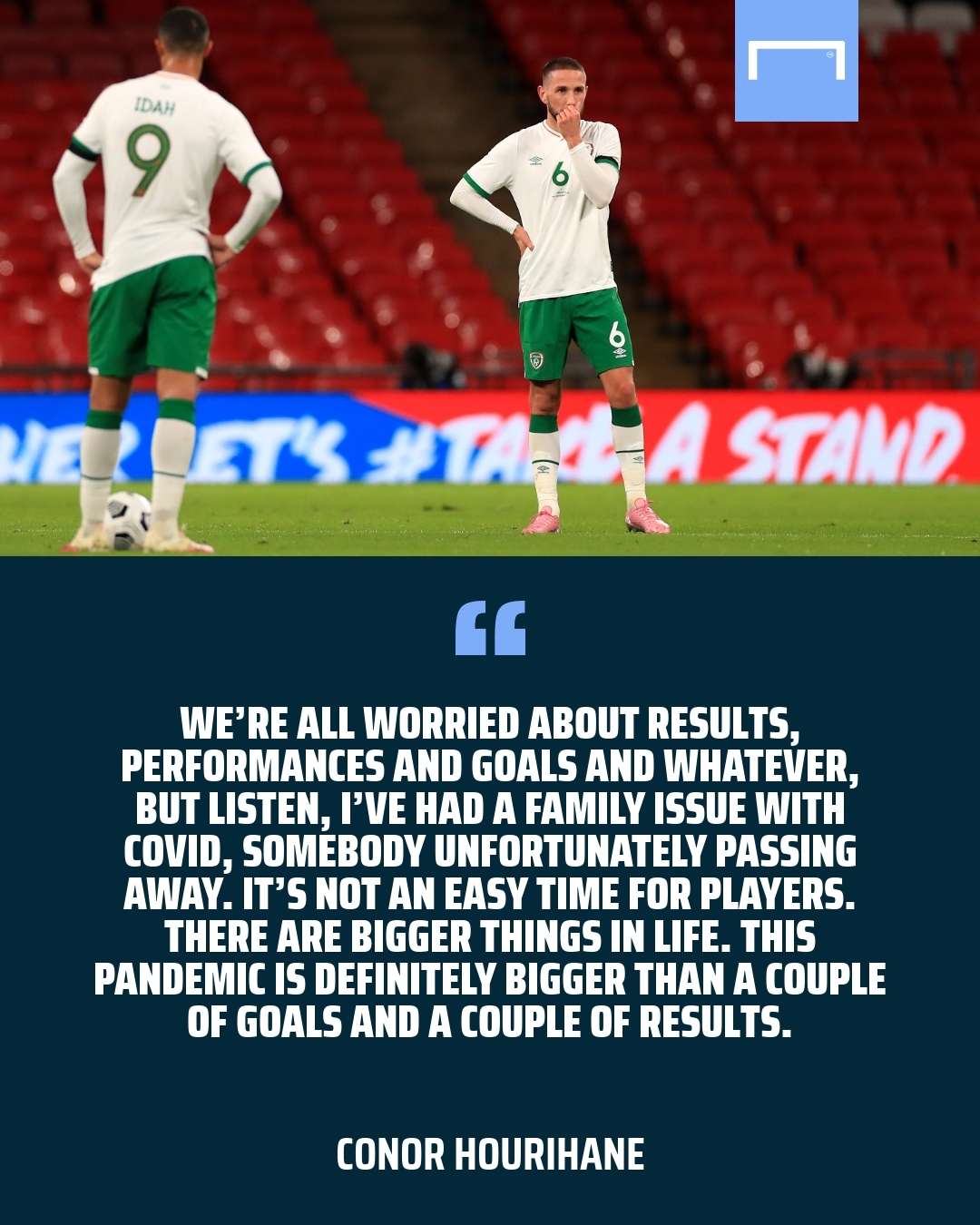 Getty/Goal
Getty/Goal
“That's why England had a joke of a friendly against Republic of Ireland (last week),” Jamie Carragher pointed out on Sky Sports earlier this week. "It was because of the financial situation at the FA, so they played that game, which was a nonsense.
"What this season has told us – through the null-and-void-the-league debate, 'Project Big Picture', the five subs rule and international football – is that everyone just looks after themselves and does what's right for them.
"So, throughout the world, nobody has given up anything in football this season and the players are just being treated like a piece of meat."
It’s impossible to disagree. If football is to continue, it must do so cautiously and intelligently.
Nobody wants to see tournaments cancelled or jobs lost. Even FIFPro - the players' union - has stated that it “strongly supports the efforts of the football industry to continue to play despite the fast-changing and unpredictable nature of the pandemic.”
However, it also argued that “the intensive current match calendar, with barely any off and in-season breaks for players, not only risks their health but also risks undermining their performance at the forthcoming UEFA European Championship and FIFA World Cup Qatar in 2022.”
It’s in everyone’s interest for football to survive this brutal period. But, at present, there are too many tournaments. There are too many games. Something has to give. Something has to be sacrificed.
Sadly, it looks like it'll be the physical and mental well-being of the players.
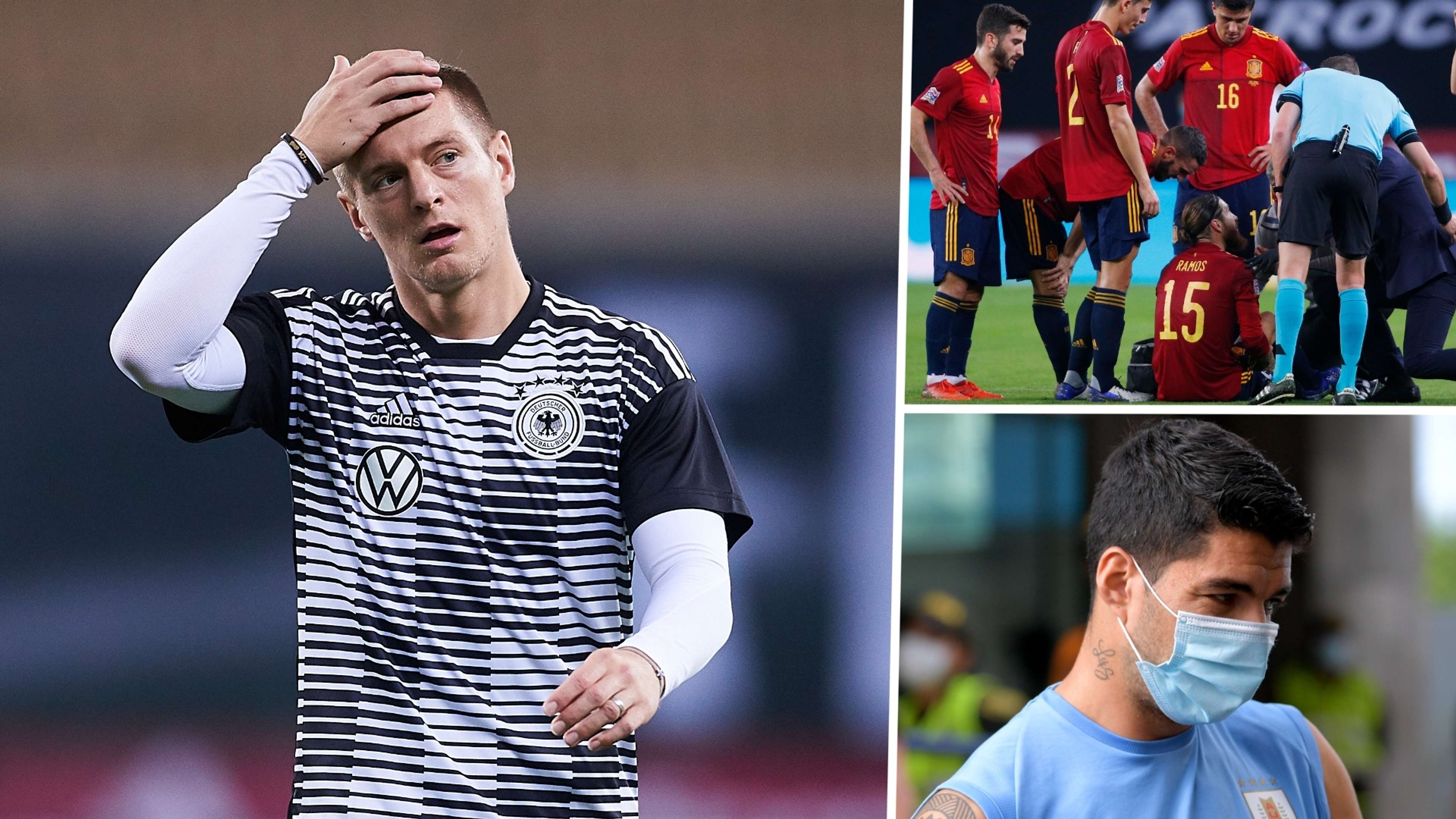
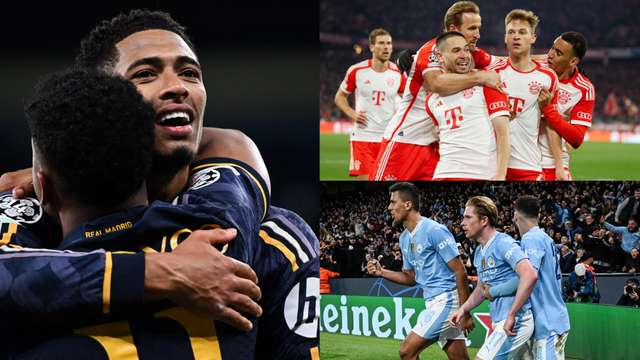
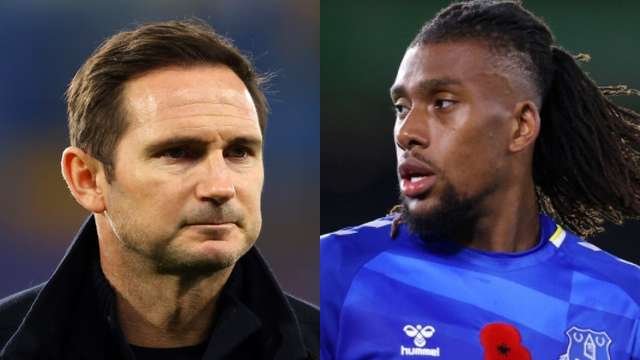
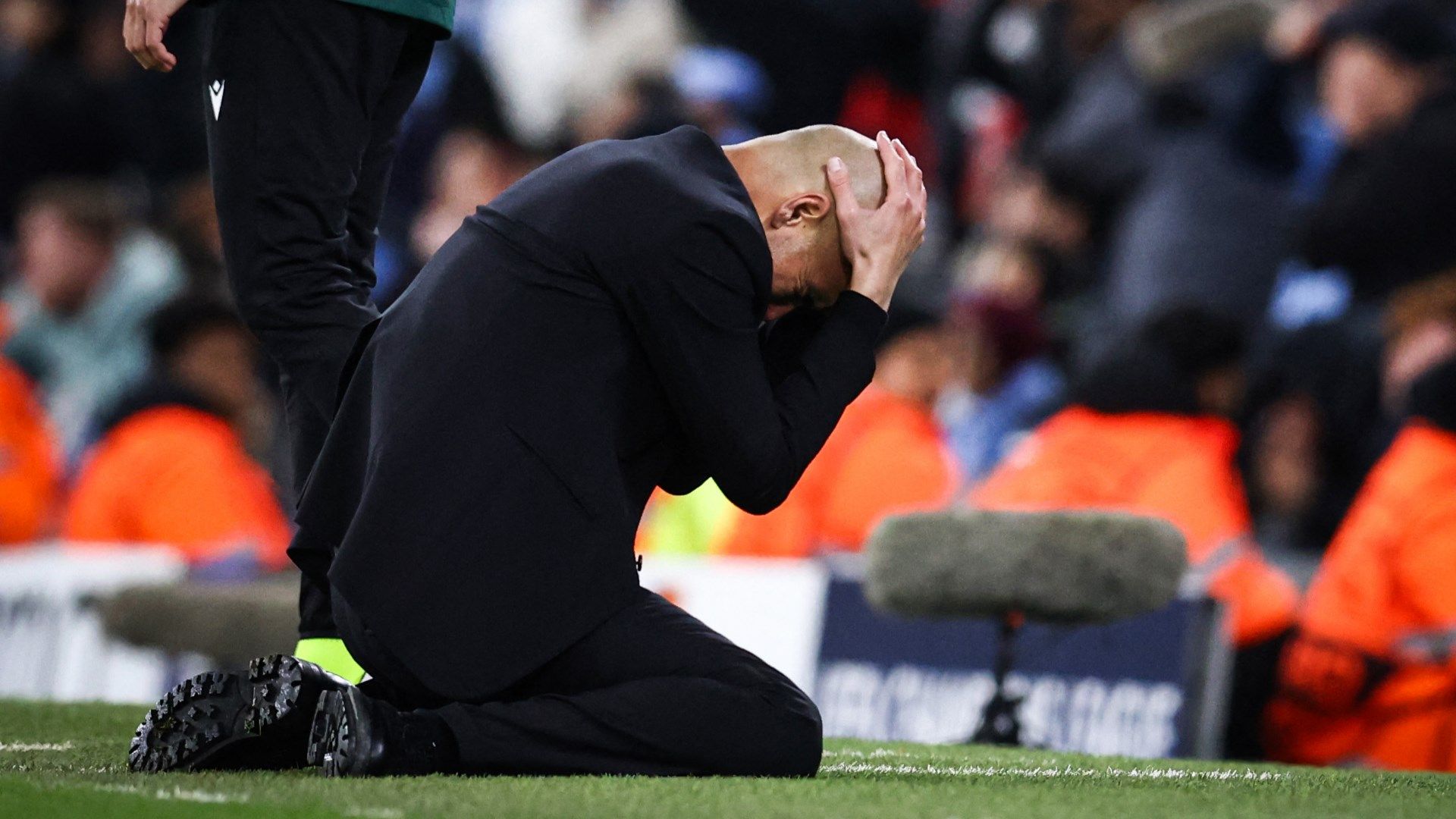.jpg?auto=webp&format=pjpg&width=640&quality=60)
